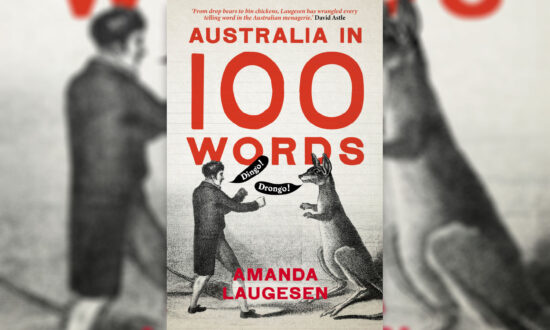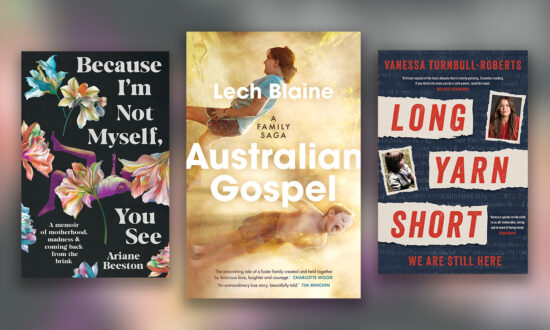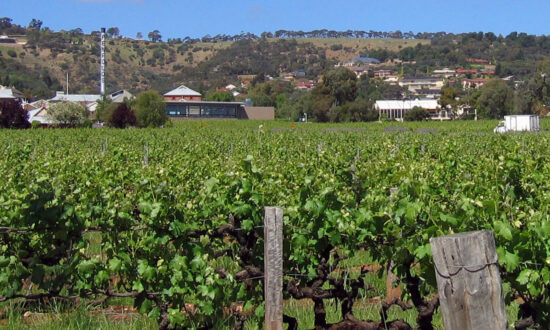Geoff Goodfellow has been a distinct presence on the national literary scene for almost four decades now. For those who have seen him perform, it is difficult to read Goodfellow’s words without hearing them in his own clipped, confrontational and precisely enunciated voice.
This new verse novella – the author’s first – is in many ways both a temporal and thematic distillation of that career. Begun nearly 30 years ago, while Goodfellow was working as poet-in-residence at Yatala Labour Prison, the manuscript went through various edits and additions before being revisited once more and finally completed when Covid struck.

Writer Geoff Goodfellow. Photo: Simon Cecere
Across 48 deceptively short pages, Blight Street presents the interrelated narrative voices of three characters. Teenagers Carl (“with a C / four letters too – / same as the other word / that starts with a C”) and his girlfriend Larissa (“Mum & i moved to Adelaide / when i was thirteen / just after dad got / locked up . . .”) and Carl’s father, Sean (“to tell the truth i’m a / repeat offender / i’ve been in trouble since / i was a kid”). Each in turn describes and reflects on their experiences of marginalisation and poverty, family dysfunction and violence, substance abuse and the carceral state.
This is heavy stuff, but there are threads of hope and lightness, too, celebrations of love and sex, or of finding figures of safety and care amid chaos. Reminders of the possibility for breaking cycles, for change and renewal.
Goodfellow began reading and writing poetry at age 33 while recovering at home from a workplace injury. Out of boredom and curiosity, he picked up his son’s school copy of Banjo Paterson’s collected works and started penning his own poems the following day. After receiving a lukewarm reception for his early rhyming efforts at the monthly Friendly Street Poets reading in Adelaide, Goodfellow shifted to writing predominantly free verse – to be taken more seriously, he suggests, but also (one suspects) to better capture the complex spontaneities and unformalised rhythms of everyday thought and speech.
Here, as always, Goodfellow presents poetry as an unapologetically accessible – rather than esoteric – mode of expression and communication, rooted in the specifics of place, context and character. He might well be compared with popular American “pulp poet” Charles Bukowski, who wrote about the working- and lower-class milieu of Los Angeles in similarly spare, accessibly straightforward language. Goodfellow, however, has always maintained a more practically engaged and politically coherent perspective on issues of social marginalisation and economic injustice than Bukowski’s libertarian persona ever did.

Get InReview in your inbox – free each Saturday. Local arts and culture – covered.
Thanks for signing up to the InReview newsletter.
Over the years, Goodfellow has presented poetry readings and workshops in jails and residential care centres, but also on building sites, at schools and universities. He has written text books and co-authored study guides for several of his own works, including this one, reflecting a commitment to making poetry matter, giving it a use value that may be lacking in more abstract critical reflections.
For Goodfellow, the writing, reading, teaching and sharing of poetry – its subject matter and social utility – are inextricably bound. Blight Street is a welcome addition to that valuable practice.
Blight Street, by Geoff Goodfellow, is published by Walleah Press. Goodfellow’s previous books include his childhood memoir, Out of Copley Street: A working-class boyhood, published in 2020.
Support local arts journalism
Your support will help us continue the important work of InReview in publishing free professional journalism that celebrates, interrogates and amplifies arts and culture in South Australia.
Donate Here




